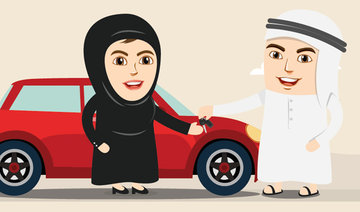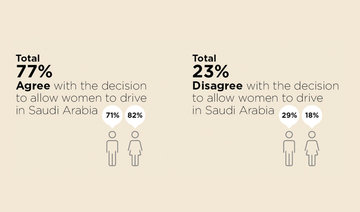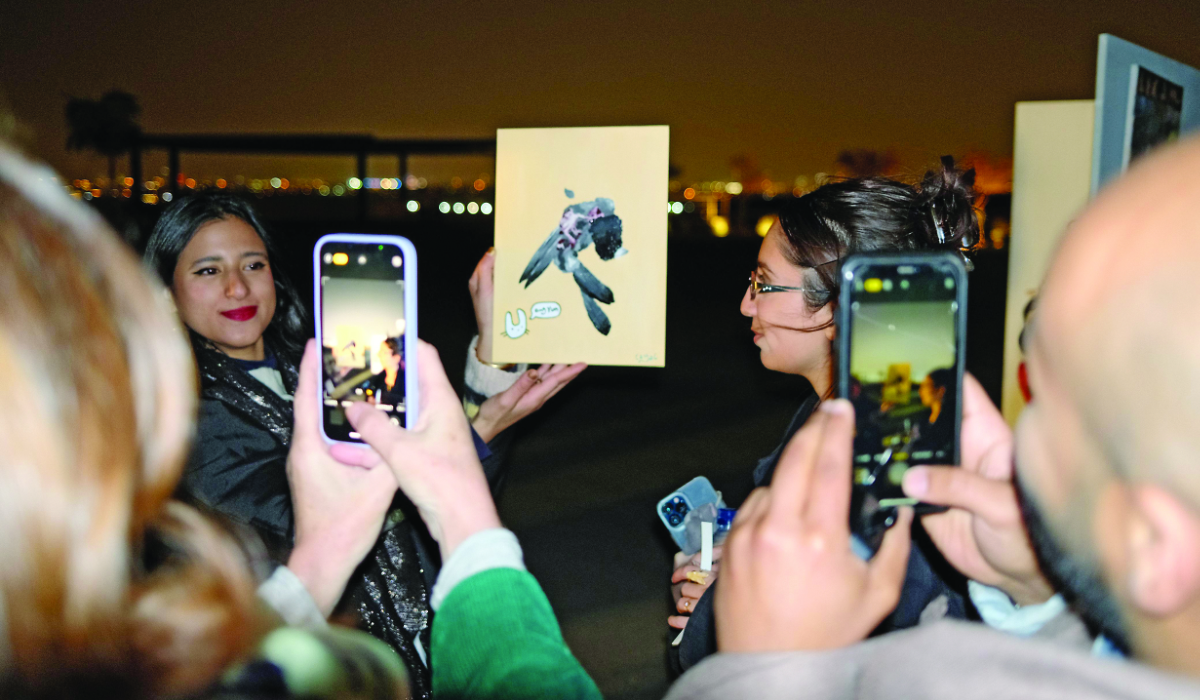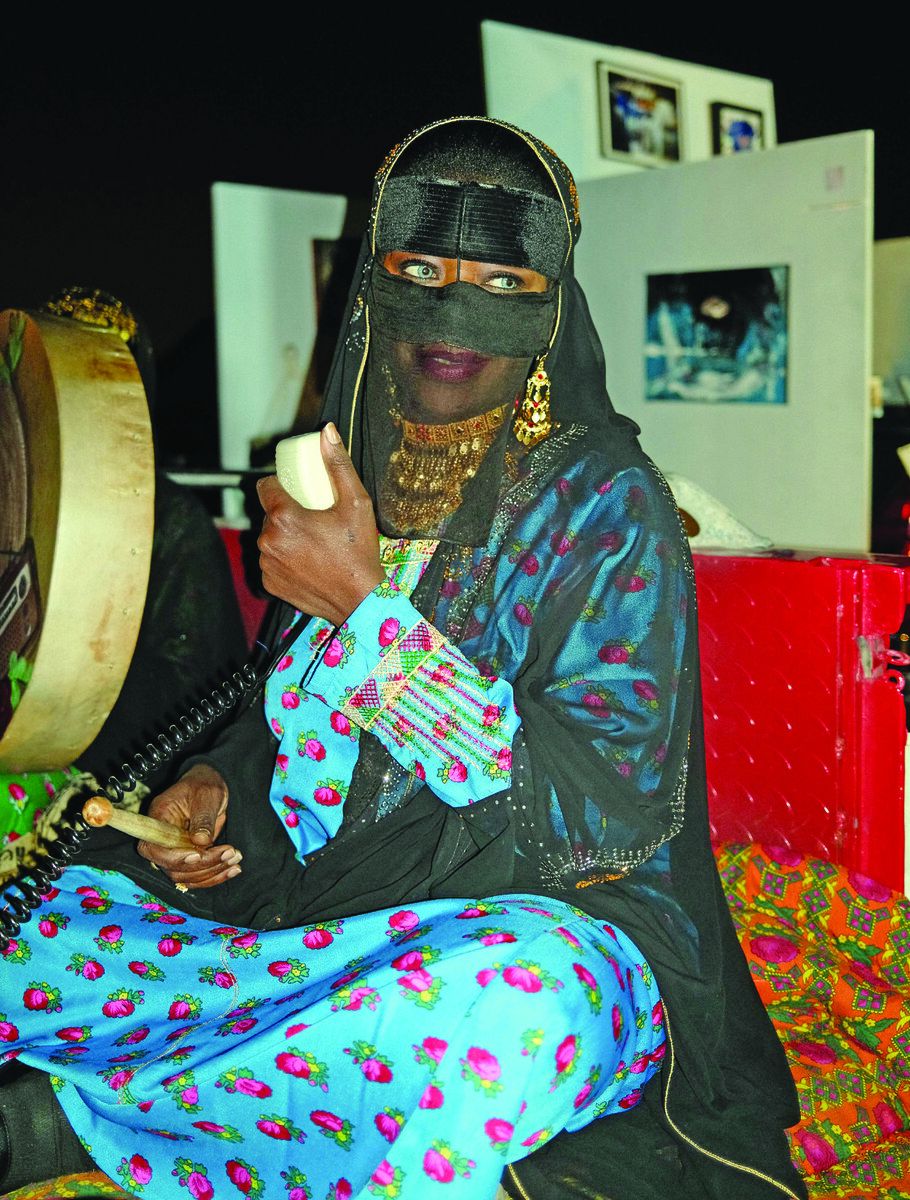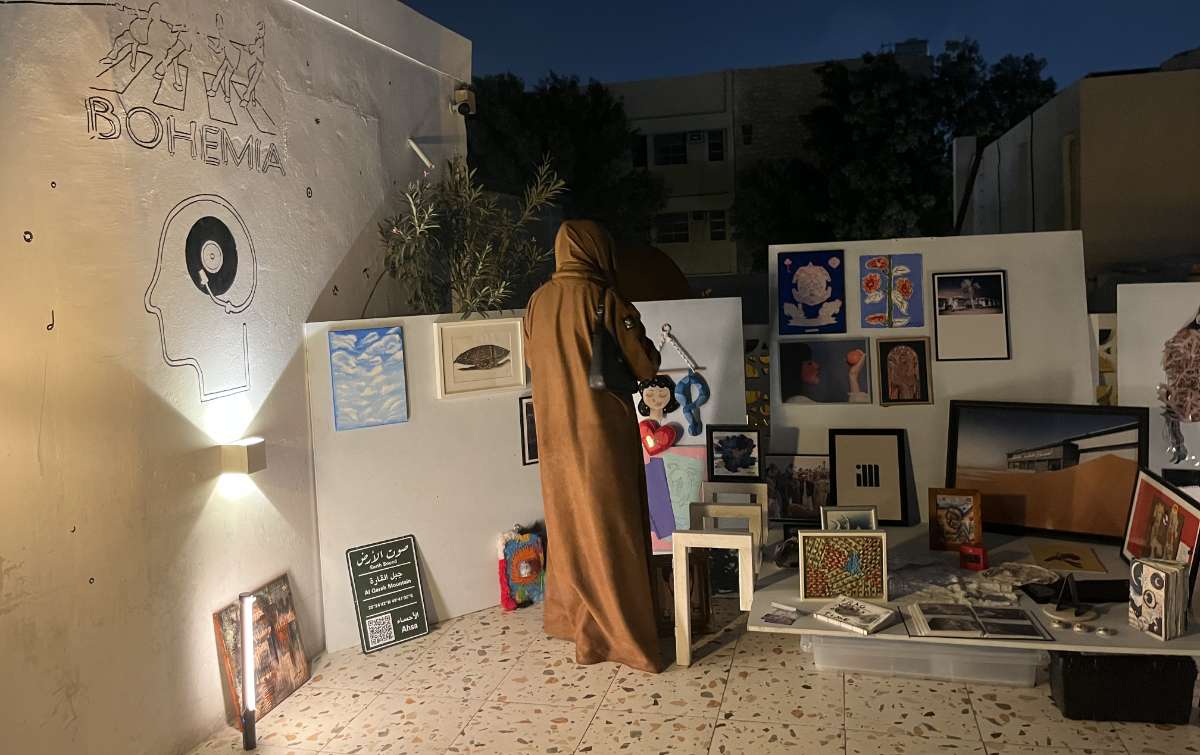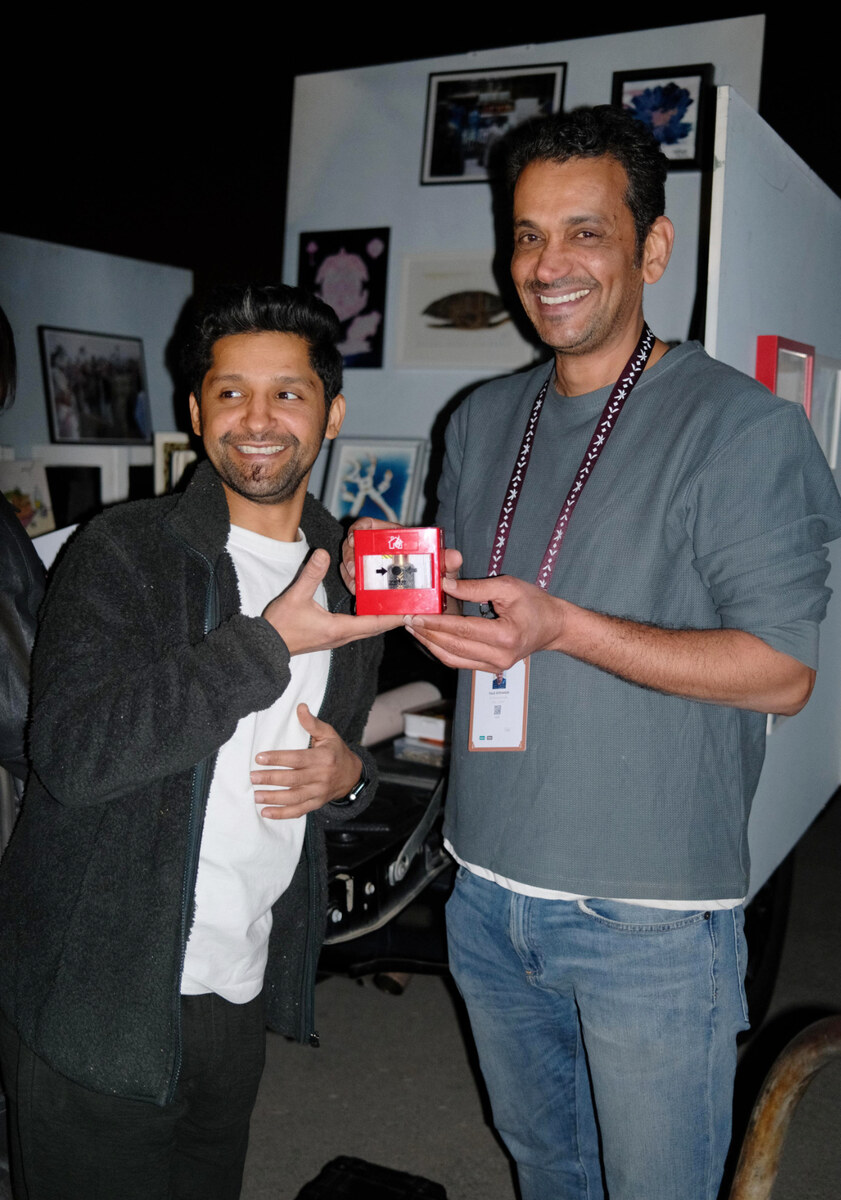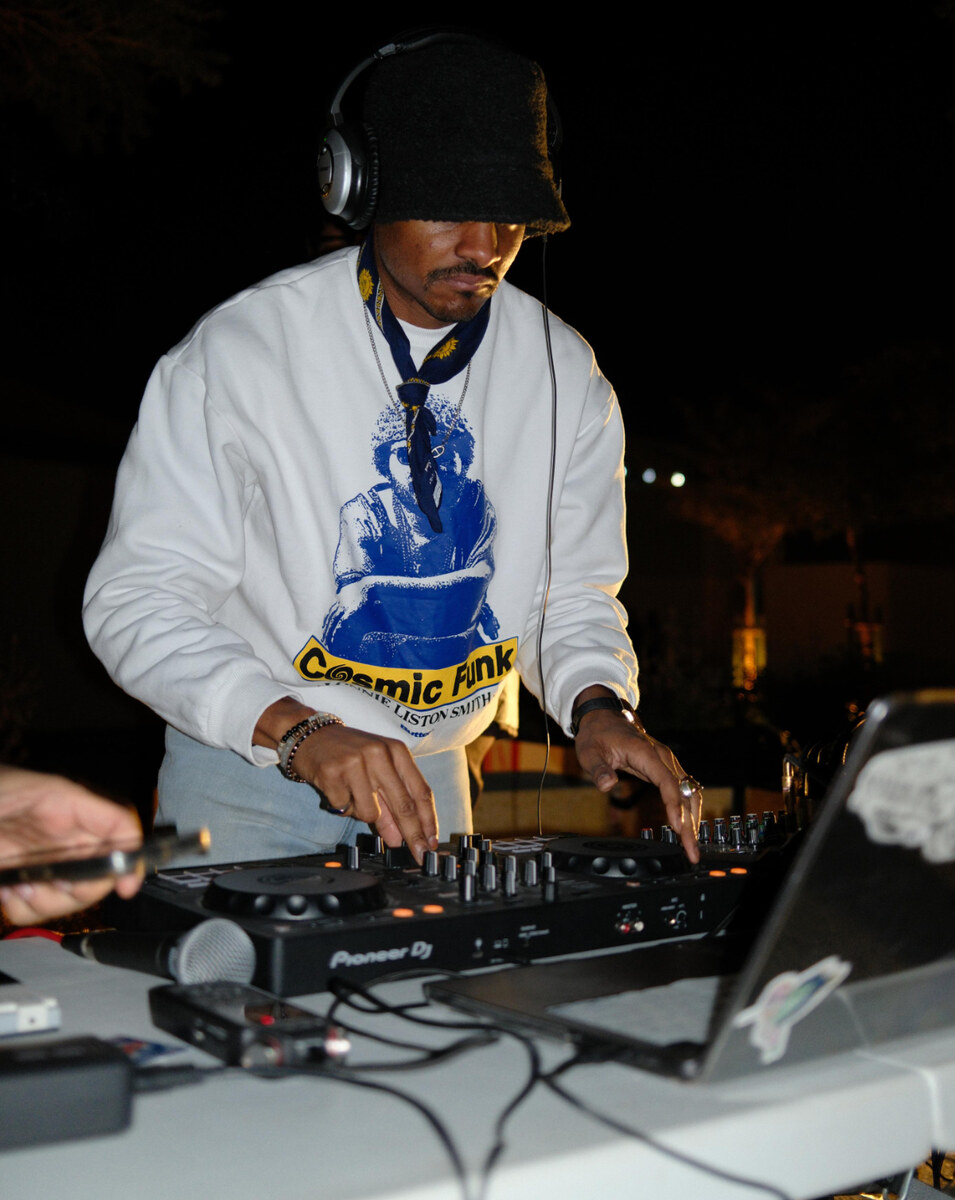LONDON: A boom in sales of budget motors is forecast in KSA, according to an Arab News/YouGov poll that revealed 85 percent of Saudi women who intend to drive say they will buy a car.
One finding of the poll, which was conducted in early October, was that 65 percent of Saudi women plan to get a driving license once the driving ban is lifted next year. Small, cheap sedans are the vehicles of choice.
With the female population of the Kingdom estimated at 14 million — with 6.5 million of those in the target age range of 20-49 — a lot of cars are set to fly off the forecourts.
That would be a boon for the flagging Saudi car market, which has seen sales of new vehicles decline from 685,000 in 2015 to a forecast 530,000 this year.
The Arab News/YouGov poll of more than 500 Saudis suggests that millions of women will look to buy a car — although cheaper makes proved most popular. Of the female respondents who intend to buy a car, 44 percent said their expected budget was just SR40,000 ($10,666) or less.
Medium-sized sedans were named as the top models, with Toyota, BMW and Jeep chosen as the most popular brands among Saudi women, the poll revealed. Black and pearl white cars are the favorites, the respondents said.
Analysts agreed that vehicle sales are set to rise in Saudi Arabia — but said the jump might be more modest than the poll suggests.
“Saudi families are big, 5.6 people per household, and most already have more than one car. So while 85 percent say they plan to purchase a new car I think in reality the figure will be much less,” Emmanuel Darku, Middle East and Africa analyst for IHS Markit, told Arab News.
David Oakley, an analyst at LMC Automotive, estimated that car sales in Saudi Arabia will see a jump of 15-20 percent next year, thanks to the lifting of the ban.
“(LMC’s) initial estimate of the impact of the lifting of the ban on female drivers was for a 15-20 percent increase in sales per year until the mid-2020s,” Oakley said.
“This would bring the Saudi market into line with the UAE, which is culturally and economically somewhat similar to Saudi Arabia, but does allow women to drive.”
While the number of women saying they intend to buy a car surprised the analysts, the preferences regarding the types of car did not. While the Gulf may be synonymous with big SUVs, experts said Saudi women’s preference for smaller vehicles makes sense.
“I’m not at all surprised women would want to swap out the large SUV for something more fun to drive,” said Rebecca Lindland, an analyst for Cox Automotive in the US.
“Small to medium sedans are easier to maneuver, park, and manage overall, and reflect preferences seen in other parts of the world.
“I can also imagine women are thinking of zipping around in traffic and expressing their personalities. That can be done better in a fun, sporty sedan than in an SUV.”
Indeed, Saudi women’s preference for smaller vehicles would simply mirror the fashion around the world.
“The trend worldwide is women buying smaller cars, or smaller SUV models such as the Hyundai Creta,” Darku said.
“In that way women in Saudi Arabia are no different to their counterparts in Europe or Asia, they go for smaller cars and I expect Saudi women to as well.”
On top of that the small budgets revealed in the poll suggest Saudi women will seek to buy smaller vehicles rather than large gas-guzzlers.
“Given the budget restrictions that the survey has highlighted, the simple fact is that new SUVs may not be affordable for a large number of women,” Oakley said.
“One example of a car that could do well would be the Renault Symbol, which starts at SR39,900. Apart from the price, the Symbol also fits within the small sedan segment which the survey respondents indicated they preferred.
“A Toyota Corolla, one of the most popular cars in the country, starts at SR61,000, and a Hyundai Elantra, also extremely popular, costs upwards of SR59,000, placing them out of the reach of many buyers.”
• For full report and related articles please visit: #SaudiWomenCanDrivePoll





